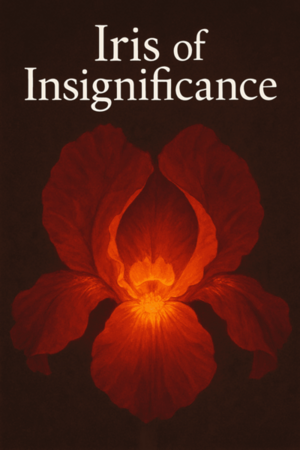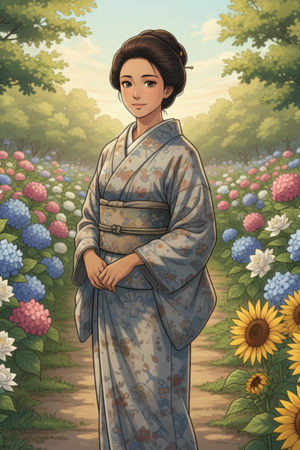Chapter 6:
The Invisible Shore
The Ocean's Lullaby
Camaret-sur-Mer slowly awoke under a pale autumn sky. The first lights of dawn revealed a ballet of seagulls above the harbor, while the few remaining fishing boats returned with their meager catch. The strong smell of wet nets floated in the air, mingled with the scent of seaweed warmed by the first light. In the distance, a small boat creaked softly against its mooring, like an old familiar voice in the still-sleeping morning. Éloi watched this daily scene from his window, a cup of coffee in hand, the violin resting on the table beside him.
Since that first night he had played Maëlle’s melody, something had changed within him. The dull pain he had carried for half a century seemed to have transformed into a gentle melancholy. Every day, he awaited the twilight with impatience, to play their melody once more facing the ocean.
Rumors had spread through the small village like wildfire. People said the old luthier was losing his mind, that he talked to himself on the beach, that he played his violin for ghosts. Some worried about him; others simply shook their heads with pity. "It’s his age," they said. "And anyway, Éloi has always been a little different."
But Éloi didn’t care what people said. For the first time in a very long while, he felt alive. Truly alive.
That morning, as had happened every morning for two weeks, he found a small gift at his door. Sometimes it was a rare sea urchin fossil, other times a dried starfish. But what touched him the most were the small arrangements of Saint Vincent stars, carefully placed in the shape of a treble clef or a fragment of musical score.
"Good morning, Maëlle," he murmured, picking up a small, perfectly round fossil, smooth as satin. "Thank you for your gift."
The day unfolded slowly, between repairing an old mandolin and preparing a special varnish for a client from Brest. But his thoughts were elsewhere, wandering to the beach, to the music, to the memories of Maëlle.
That evening, as the sun began its slow descent toward the horizon, Éloi took the violin and went down to the beach. He settled in his usual spot, on a flat rock that slightly overlooked the water. The waves lapped gently at the base of his perch, as if inviting him to play.
He began with their melody, the one he played every evening. Then, emboldened by the sea’s calm, he followed with other pieces Maëlle had loved to play long ago. A Bach sonata she had practiced tirelessly, an Irish lullaby her mother had once taught her. His fingers, stiffened by age and years of work, slowly regained some of their old agility.
The sky darkened gradually, the stars appeared one by one, and the nearly full moon rose, drawing a silver path across the water. Éloi continued playing, lost in a world somewhere between dream and reality.
Then he heard it—a response to his melody, a delicate echo that seemed to come from the ocean itself. Clear, pure notes intertwined with his own in a perfect dance. His bow froze in midair. The sound continued for a few moments before fading back into the whisper of the waves.
That night, Maëlle appeared to him in a dream. She was no longer the adolescent he had known, but a mature woman, her once-flaming hair streaked with silver, her face marked by the years that had never been. She smiled at him without speaking, standing knee-deep in the water, her violin in hand. Behind her, Éloi glimpsed other blurred silhouettes, waiting silently.
He awoke with the first rays of the sun, his heart strangely light. The dream, far from disturbing him, had brought him peace. He rose and went directly to the window to gaze at the ocean.
"So that’s it, Maëlle..." he whispered to the waves.
"I understand now.
You’re inviting me to join you on the other shore, where pain and waiting no longer exist."
The following days passed in a strange atmosphere of expectation. Éloi continued his daily routine, but everything now seemed imbued with a new meaning. Colors appeared brighter, sounds clearer, as if a veil had been lifted from the world around him.
Each evening, he played on the beach, and sometimes, he heard that mysterious response, that melody that intertwined with his own. Each night, Maëlle visited him in his dreams, always silent, but radiant with a deep, unshakable peace.
That night, the moon was nearly full, casting a silver light, almost supernatural, over the glassy sea. In sixty years of life, Éloi had never seen the ocean so calm. Not a wave, not a ripple—only a vast, liquid mirror reflecting the starry sky in all its splendor. He watched the scene from his window, Maëlle’s violin pressed against his chest like a talisman.
This night was different. He felt it deep within himself, with the same certainty that had once allowed him to predict storms before the skies darkened. But this was no coming storm. It was something else entirely.
Éloi pulled on his old woolen jacket, the one his mother had knitted for him decades ago. He ran his fingers over the initials M.L. carved into the back of the violin. The wood, once swollen with seawater, now vibrated under his caress like a heart beating in time with his own. Since he had restored the instrument, Éloi felt it breathed along with the tides.
He closed his eyes for a moment, listening to the instrument’s whisper, as if it was already calling him toward a wider elsewhere.
"I’m ready, Maëlle," he said softly as he stepped out of the house.
His neighbor was waiting for him on the doorstep.
She reached out her hands toward Éloi in a maternal gesture.
"I see..." she murmured, adjusting the collar of his jacket. "You’re ready to answer the ocean’s invitation."
Éloi answered her with a silent gaze, then walked away without a word.
Madame Kervella stood there for a long time, motionless, watching his silhouette move toward the ocean, toward the place where the visible world faded into the mist.
With every step, the air grew softer, denser. The light of the village dimmed behind him, like a memory slowly dissolving.
Éloi did not look back. He walked on, carried by a certainty older than the sea itself.




Please sign in to leave a comment.